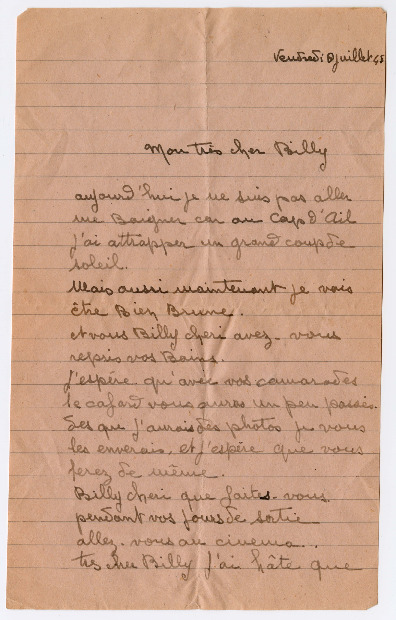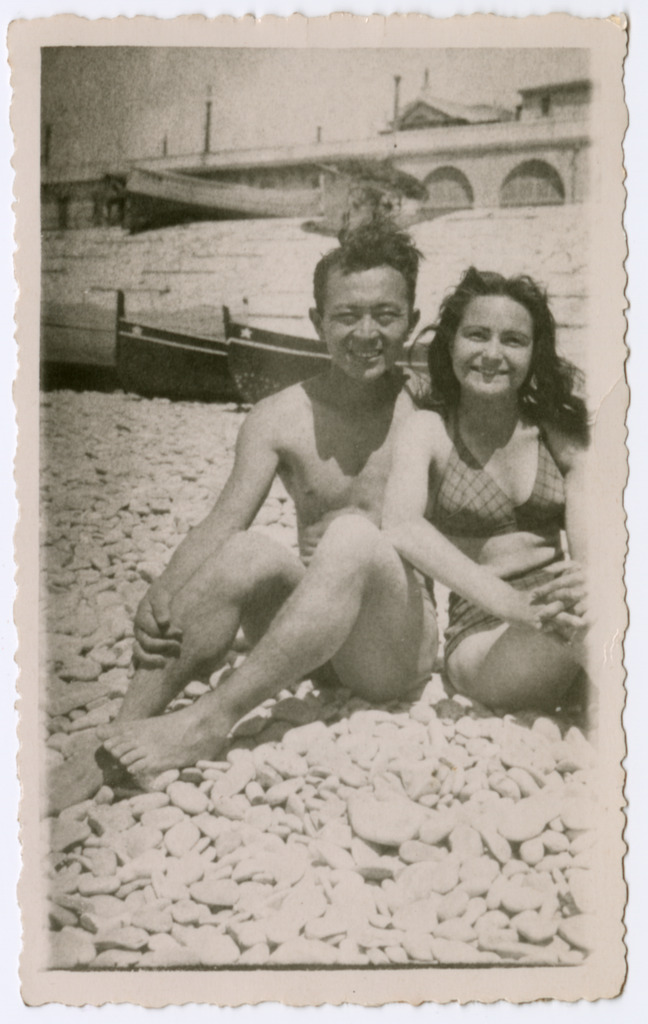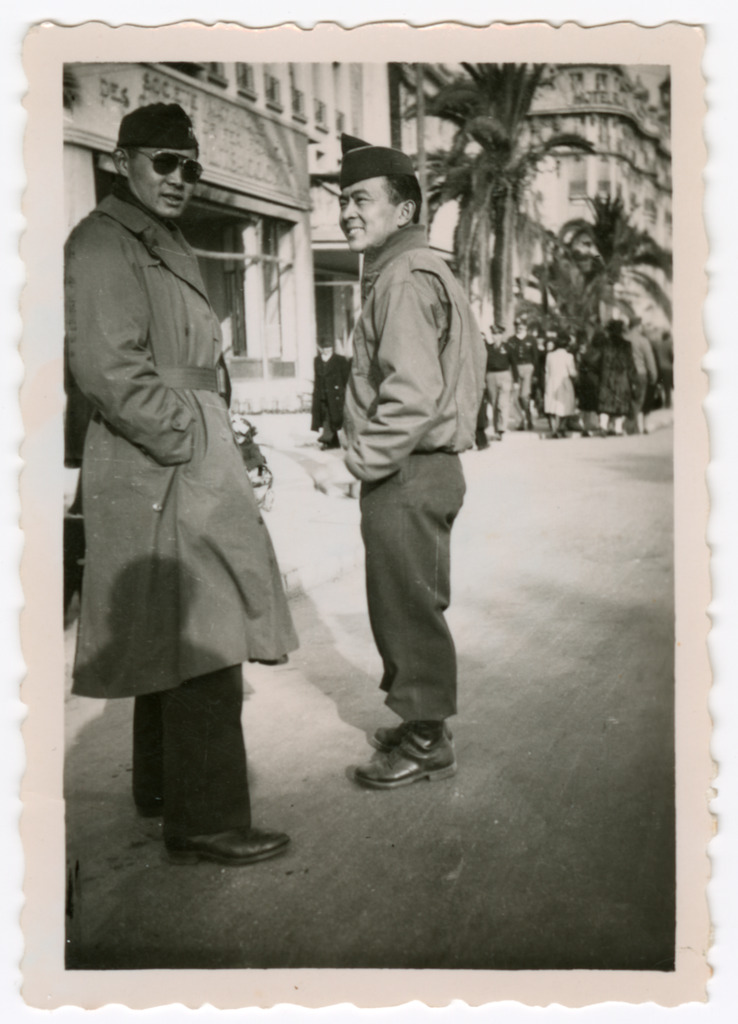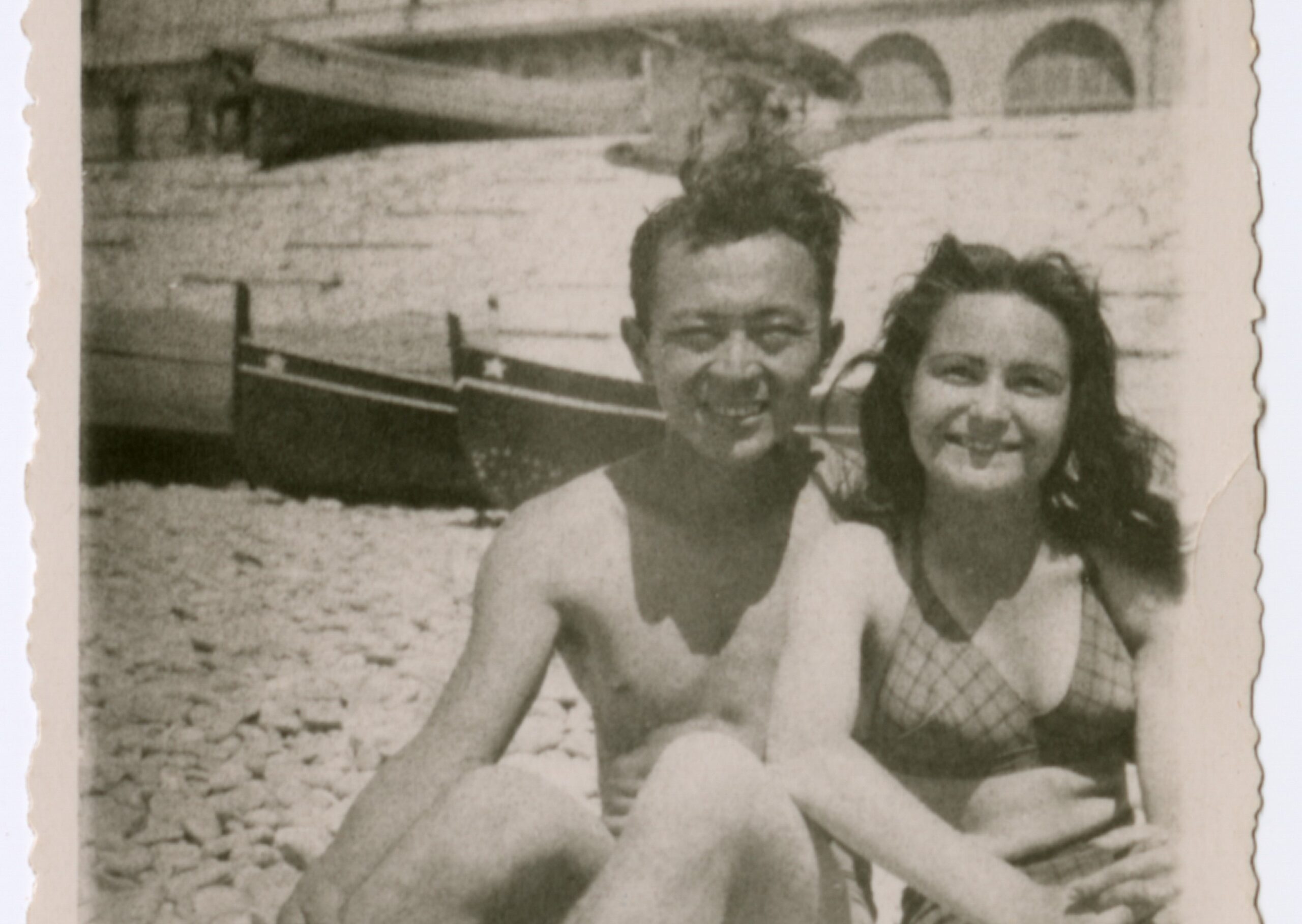April 30, 2024
Kathryn Perry Bolin is a graduate student at the University of Washington pursuing a Master’s in Information and Library Science (MLIS), and recently completed an internship with Densho’s archives team. She shares her appreciation for the work Densho does to preserve firsthand accounts of marginalized history. In this Q&A, she talks about why hearing directly from the people who were impacted is one of the best ways to memorialize them and show the impact not only of prejudice, but also of resistance.
What sparked your interest in working with archives?
I was a graduate assistant at the Special Collections and University Archives at Virginia Tech while getting my MA in History. I wrote my thesis on American immigration policy during the Holocaust, so I’m familiar with the American attitude of that time about determining policies in the name of national security that are now acts that we recognize as prejudice. Initially, I thought I would likely work in museums since I was studying history, but my supervisors at Special Collections said I was good at the job and should get a degree in it. I had not heard of library science, but I learned that’s the degree you needed to work in archives. Since I enjoyed my experience at the VT archive so much, I decided to get my MLIS at the University of Washington.
Did you have a favorite collection that you worked on during your internship?
I worked on the third accession of the Iino Family Collection at the start of my internship, which was my favorite collection to work on. My supervisors, Micah and Sara, gave me options of what to work on before the start of my internship, but I chose this one because it was predominantly a collection of French letters. I minored in French in college, so I thought this would be a fun way to brush up on my French, and letters in particular are some of my favorite materials to work with in archives. They give such insight into people’s experiences during specific parts of their lives and add contextualization you just don’t get in history books.





Why do you think archival work is so important?
There are many benefits to archiving that I could talk about, but community archives and institutions like Densho that ensure proper contextualization and representation about underrepresented histories are a platform for social justice work. They have the ability to work with communities so that they have a say in how their own history is documented. They can address power dynamics in historical records through reparative work and data remediation and make materials more accessible to the public through digitization. When you look at the scholarship of archival work, there has been a shift for more community collaboration and shared stewardship of records in order to uphold more equitable archiving practices within diverse collections. Archives that embrace that shift and want collaboration are the kinds of spaces that best preserve, educate, and advocate for cultural values, and that’s what makes them important.
Was there something you learned, or an experience that felt meaningful to you, while doing this work?
During my internship I met with Caitlin Oiye Coon, Densho’s Archives Director, to talk about the development of their topics thesaurus. My course work at the University of Washington has gotten me interested in the creation of resources like preferred terminology guides and inclusive subject heading in archives. Caitlin was kind enough to meet with me to explain that the thesaurus was created as a way to tag clips of oral histories due to the lack of representative terminology from Library Congress Subject Headings, especially about Japanese American incarceration. It was then broadened to incorporate subjects reflected in photos and documents that were later collected. It was developed with the influence of Japanese American community members and scholars and has been used as an educational and standardizing tool. Caitlin also explained that Densho’s terminology guide, which differs from the thesaurus, is used to define preferred terminology when talking about this history and explains why specific language is chosen.
The development of topic thesauruses and terminology guides is meaningful to me because they are a reflection of the ethical and social justice work archives do. They show the care archivists put into accurate representation of communities. They can be used to update harmful, biased, outdated terminology in archival descriptions and provide guidance on how to be more respectful and inclusive. Hopefully, I’ll be working in an archive one day creating similar tools.
—
Kathryn Perry Bolin, Densho Archives Intern
Kathryn is a graduate student at the University of Washington pursuing a Master’s in Information and Library Science (MLIS). Before this program, she wrote her first MA thesis on American immigration policy during the Holocaust, so she is familiar with the American attitude of that time about determining policies in the name of national security but are now acts that we recognize as prejudice. She learned about Densho through Caitlin Oiye Coon, Densho’s Archives Director, who was a guest speaker in one of her MLIS courses. Kathryn appreciates the work Densho does to perverse first-hand accounts of marginalized history and thinks hearing directly from the people who were impacted is one of the best ways to memorize them and show the impact, not only of prejudice, but also of resistance.


